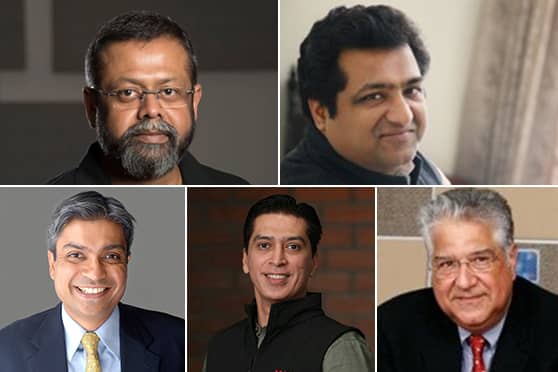Takeaways from industry leaders at St. Xavier’s College Entrepreneurship Awareness Camp


The Entrepreneurship Awareness Camp (EAC) organised by the Entrepreneurship Development Cell of St. Xavier’s College (Autonomous), Kolkata, was a one-stop destination for tips on how to set up a business. The Park Street campus hosted a series of sessions by industry leaders from April 7 to 9. Edugraph was the digital media partner for the event.
Here are some takeaways from the sessions.
Soumen Ray, chief financial officer, Airtel Ltd
The decision that you take is going to impact the most productive 30 years of your life. Hence, the decision has to be made with a lot of thought and attention. Line function helps an organisation generate its revenue. For instance, in St. Xavier’s College, the professors are line functions. The librarian or the principal are staff functions. Line and staff can be in part of a corporate set-up, too. You can be a generalist. Every two to three years you change your job even though your specialisation is finance or marketing. You can also become a specialist like a finance or a treasury guy. You will begin as a treasury guy and end as a treasury guy developing your skill sets all the way through. In consultancy, you can only be a specialist. This is the broad framework of your career.
Tushar Kansal, founder and chief executive officer, Kansaltancy Ventures
The good part about hard skills like marketing and management is that they are easy to acquire. I am very happy with the entrepreneurship development cells of colleges nowadays. There is a lot of exposure. The pandemic has prompted all EdTech companies to launch video-based courses. So, the content is out there for very cheap. You just have to be willing to subscribe to it, spend time and acquire it.
First, exceeding conventional beliefs and transitioning from traditional wisdom to thinking beyond the established. It drives entrepreneurs to bring disruptive ideas to the table. Second, being independent thinkers. This makes entrepreneurs take risks while considering the possible consequences and being ready to handle them. Third, practising decentralised management wherein entrepreneurs delegate co-workers to ensure that decision-making authorities are not limited to a set of top executives.
Sandeep Singhal, co-founder, Nexus Venture Partners
We work with entrepreneurs. So how do we find them? There are two ways to do it. One is the outreach approach where we are reaching out within the ecosystem to identify companies that are growing and showing scale. The other is when people write to us. We have around 10 to 20 people writing to us each day, maybe more. When we get inbound mails, the expectation is that somebody recommends the entrepreneur. If the idea fits our interest and what we want to do, then we will start with the first phase of the meeting to understand the business. Depending on what you are looking at and how things are going, we can move towards investment as quickly as in a week or it can take a few months. The term sheet would have various terms of what the investment will be. Since in the audience some students may have a concept or an idea and not a very big company, typically this process should not take more than four to eight weeks.
Shashank Randev, founder VC, 100X.VC
In our case, we are a very early seed stage fund. In the seed fund, we are looking at all the parameters. But we don’t value the company right upfront. Our model is that we give fixed capital for a fixed term through a convertible preference share. We also work with very early-stage founders. which is typically right after an ideation stage.
Arjun Malhotra, co-founder, Hindustan Computers Limited (HCL) Technologies
Two things you got to remember. We bootstrapped HCL. I can tell you for the first 10 to 15 years of my life, I spent 60% of my break time thinking and worrying about cash flow. Investment and dilution depend. Are you planning to have a big company then how does it matter if you dilute? If you own 10% of a billion-dollar company, life is not going to change. However, if you are looking at a small company, then you have to look at bootstrapping and other methods. Ultimately money should give you peace of mind.